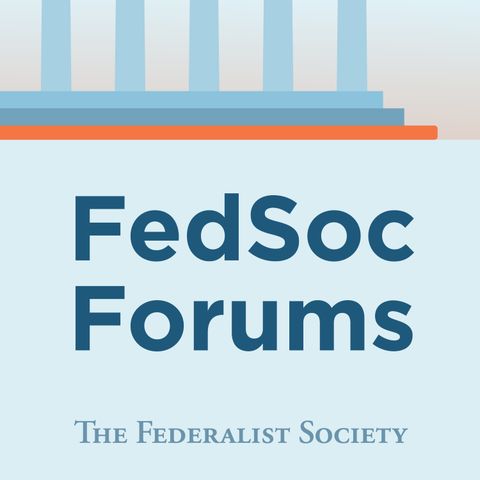How Texas Killed EEOC “Guidance”—in the Fifth Circuit, with a Gavel

Nov 11, 2019 ·
40m 12s
This past August the U.S. Court of Appeals for the Fifth Circuit issued a significant administrative law opinion that has thus far drawn too little attention. The case involved guidance...
show more
This past August the U.S. Court of Appeals for the Fifth Circuit issued a significant administrative law opinion that has thus far drawn too little attention. The case involved guidance the Equal Employment Opportunity Commission issued in 2012 telling private and public employers—such as the State of Texas—that they could not run criminal background checks on potential employees without incurring potential disparate impact liability for disproportionately screening out statutorily protected groups. Most news articles discussing the case have focused on the immediate outcome, which is that the Fifth Circuit enjoined EEOC’s guidance, effectively preventing the agency from bringing any enforcement actions based on its theory of liability. But that’s not the big story here. Rather, it is how the Fifth Circuit’s decision did it that could reverberate far beyond the confines of this case. The court may have sounded the death knell for *all* EEOC guidance. When Congress created EEOC, it deliberately denied the agency the ability to issue rules. For the past half century, EEOC did not let this statutory constraint slow it down much. Denied the ability to pass rules, EEOC passed mere “guidance” instead. But because that guidance was backed up with (1) the threat of enforcement; and (2) employers’ knowledge that federal courts readily defer to EEOC’s interpretations of its governing statute, the guidance was as good as law. However, by enjoining the criminal background check guidance on the ground that EEOC has no substantive rulemaking power, the Fifth Circuit exposed the fact that EEOC has long been acting outside its congressional grant of authority. In other words, the reason the Fifth Circuit gave for prohibiting this particular EEOC guidance would apply to most—if not all—substantive guidance that the agency issues. This teleforum examines the Fifth Circuit’s decision in State of Texas v. EEOC and discusses what role (if any) EEOC guidance will play going forward.
Featuring:
-- Mark Chenoweth, Executive Director & General Counsel, New Civil Liberties Alliance
-- Moderator: Hon. Eileen J. O'Connor, Law Office of Eileen J. O'Connor, PLLC
show less
Featuring:
-- Mark Chenoweth, Executive Director & General Counsel, New Civil Liberties Alliance
-- Moderator: Hon. Eileen J. O'Connor, Law Office of Eileen J. O'Connor, PLLC
Information
| Author | The Federalist Society |
| Website | - |
| Tags |
-
|
Copyright 2024 - Spreaker Inc. an iHeartMedia Company
